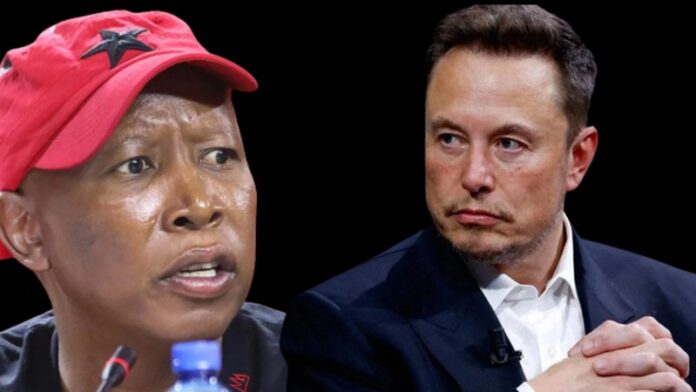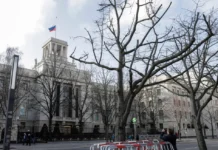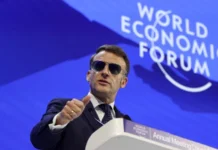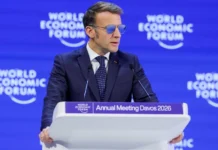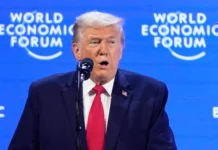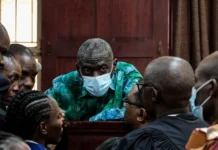The Economic Freedom Fighters (EFF) have launched a scathing attack on billionaire entrepreneur Elon Musk after he called for party leader Julius Malema to be declared an international criminal.
The South African Marxist-Leninist and pan-Africanist party dismissed Musk’s remarks as interference in the country’s domestic politics and accused him of pushing a broader imperialist agenda.
Musk, the CEO of Tesla and owner of X (formerly Twitter), made the statement on Sunday in response to a resurfaced 2018 video in which Malema made controversial comments about white South Africans.
The video, recorded during the launch of the EFF’s election registration campaign, showed Malema saying his party sought to remove then-Nelson Mandela Bay Mayor Athol Trollip because he is a white man.
Malema further declared that targeting white leaders would inflict terrible pain on their communities.
In reaction, Musk tweeted that Malema’s comments constituted a serious crime and demanded ‘immediate sanctions’ against him.
The Tesla CEO’s statement has since sparked a fierce political debate in South Africa, with the EFF framing it as an attack on African leadership and sovereignty.
The EFF responded with a strongly worded statement rejecting Musk’s remarks, claiming he was attempting to manipulate global politics for personal gain.
The party accused Musk of using his influence over the United States government to discredit leaders who oppose Western imperialism, labeling him a ‘billionaire maniac’ who interferes in the affairs of sovereign nations.
According to the EFF, Musk’s growing control over political narratives is evident in his alleged influence within the US government.
They pointed to his recent appointment by President Donald Trump to the ‘Department of Government Efficiency’ (DOGE), a newly established body created in November 2024.
The party suggested that Musk has captured the US presidency and is using his position to push his business interests while undermining independent nations.
The EFF also took direct aim at Musk’s business empire, vowing to block his satellite internet service, Starlink, from operating in South Africa unless it complies with local ownership laws.
The party insisted that Starlink would have to meet a 30% local ownership requirement before being allowed to function in the country.
As part of its counterattack, the EFF called on progressive nations including Russia, China, and India to reject Musk’s enterprises, warning that his influence could compromise their political and economic sovereignty.
The party accused Musk of working in concert with right-wing elements in the US, Israel, and South Africa to advance a global capitalist agenda that suppresses African economic freedom.
The statement concluded with a defiant tone, asserting that the EFF would never back down from its struggle against imperialism, no matter the opposition it faces.
The party reaffirmed its commitment to land expropriation without compensation as a fundamental principle of economic justice in South Africa.
Musk has yet to respond to the EFF’s counterclaims, but his remarks have ignited widespread debate over the role of global billionaires in shaping political discourse.
The clash between the Tesla CEO and South Africa’s radical left-wing party has added a new dimension to the broader debate about land reform, racial tensions, and foreign interference in African politics.









